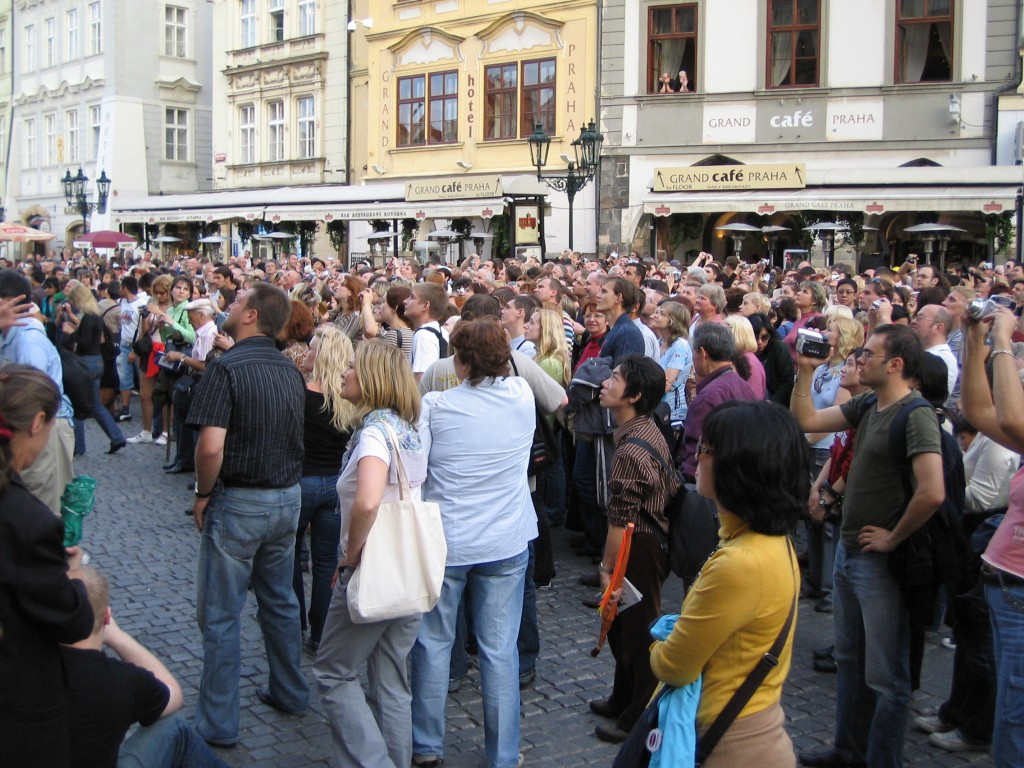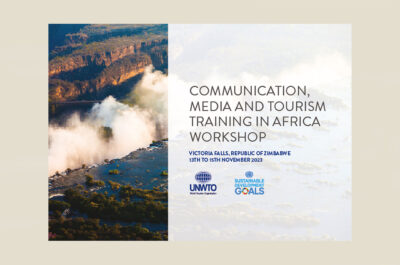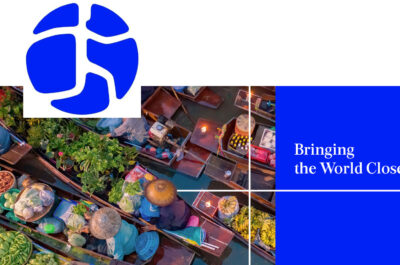Mass Tourism is under assault by many critics who accuse it of environmental degradation. So, what is more achievable; to preserve the environment by reducing the numbers of tourists and embrace an “eco-tourist” consciousness or can we become divine and ‘create’ a new environment?
I feel rather discouraged to write an article about the negative sides of tourism as an owner of a tourist business. Additionally, travelers have been good for my pocket and my business success in the area of tourism. However, I do preserve the right to write from the perspective of the “traveler.” Now for the opposed case, we must take account of the common good. Everything in life has two sides; it has its positive and negative side and the tourism industry is not an exception. While tourism generates billions of dollars in revenue, we seem to forget the harm it causes. Isn’t it horrifying that we have to fight our own governments to protect the environment? It is not hard to guess what the position of these governments would be since they are the ones to take the decisions. The places served by ministries of tourism and destination marketing organizations are often victims of their own success. Why? More destinations want a bigger piece of the pie and have accessible strategies to magnetize more and more visitors and visitor expenditures. Results are overcrowding, cultural homogenization and growing dissatisfaction by locals. Yes, tourism, brings money, provides jobs, it provides a means and incentive for investment; it promotes intercultural communication and “locality” and surely helps other industries such as airline companies, food production, etc.
But it does harm too. Bad things can happen quickly, but good things aren’t built in a day. Like it or not at the moment tourism is about economic exploitation; the privileged being served by the non-privileged, cultural bullying, pollution, irresponsible tourism all around. Daniel Kahneman mentioned in a conference that “[n]o matter how awesome the tourists’ experiences are they don't necessarily have much to do with the happiness of their "remembering self." So, with sadness in my heart I believe that on average tourism causes a little bit more harm than good.
Now consider Tourism like Frankenstein; a “monster” out of control with ominous consequences. According to the report from the World Tourism Organization, international tourist arrivals grew by over 4% in the first half of 2019 than 2018. The number is expected to touch $1340 Million by the end of 2019 and this is set to keep growing in 2020. It is expected that the sector will outperform the global economy in the next decade, increasing by an estimated 4% on average annually in the next 10 years. But did you also know that only 5-10% of the money tourists spend remains in the destinations they visit (mainly due to leakage)? So, is that a monstrous industry? Yes, it is! Is that monstrous industry has negative effects too? It surely has! Universal antipathy towards tourism has long been a common theme. Koson Srisang quarrels that tourism “does not benefit the majority of the people. Instead it exploits them, pollutes the environment, destroys the ecosystem, and bastardizes the culture… [It] epitomizes the present unjust world economic order where the few who control wealth and power dictate the terms.”Look at the effects of tourism on the environment; polluted air (by transportation), polluted water, deforestation, etc. The more the people travel the more careless resorts, shops and ways of transportation will be developed and the more forests, mountains, etc will be destroyed.
Flying contributes about 4% of global carbon emissions-bad enough-compared to deforestation (for building new resorts, etc) that accounts for almost 20% of harmful CO2. Concerning water shortage a hundred golf courses, for instance, “use as much water as a city of 1.25 million people.” Particularly an average golf course in a tropical country such as Thailand requires 1500kg of chemical fertilizers, pesticides and herbicides per year and uses as much water as 60,000 rural villagers (source: Tourism Concern). Isn’t that frightening? Further on a study showed that from 109 countries with coral reefs 90 of them are being damaged by cruise ship anchors and sewage, by tourists breaking off chunks of coral, and by commercial harvesting for sale to tourists (Ocean Planet Source). Additionally, in the Mediterranean lack of water has become a huge concern. The warm climate and the wontedness of tourists to consume recklessly more water when on holiday than they usually do results in “an amount used up to 440 liters a day.” This is almost double what the inhabitants of an average Spanish city use” (GDRC, 2018). Clearly this is not sustainable for much longer. Beyond any doubt in the long term such inadequacies will result in an environmental chaos.
I recently had a conversation with a backpacking guide who told me that once he had taken a group on the Indian Himalaya, he precisely said “they foolishly throw trash everywhere, because it's the woods and it doesn't matter.” It is the naked truth that trekking tourists generate a great deal of waste. They leave behind their garbage, oxygen cylinders and even camping equipment. Such practices corrupt the environment since in isolated areas there are few garbage collection facilities. To prove the point it is indicated that a number of trails in the Peruvian Andes and in Nepal visited by tourists have been nicknamed as "Coca-Cola trail" and "Toilet paper trail".
At Mt. Huangshan in eastern China due to the invasion of visitors this World Cultural Heritage Site has had an excess of 1,000 tones of rubbish and 3,000 tones of excrement all of which cannot be disposed of within a short period of time (Ramdass, 1995). The Wider Caribbean Region, extending from Florida to French Guiana, receives 63,000 port calls from ships each year, and they produce 82,000 tons of garbage. About 77% of all ship waste comes from cruise vessels (Our Planet, UNEP magazine, volume 10, no. 3, 1999). Unfortunately these people don't realize the impact of their actions because they haven't seen the landscape how it was. It's just that people often don't realize what they're doing until the impact of 100 people doing the same bad behavior is pointed out to them. So if you think about it, it isn't just their tourism, it is their lifestyle overall that negatively affects the planet.
Mass Tourism is an excellent example of the destructive nature of economic development. Let me elaborate on the dramatic increase of mass tourism in Venice. This increase in tourism matches however with a decreased length of stay and a shift of touristic behavior that is harming deeply the inhabitants and the local businesses. The native Venetian population keeps on decreasing since several decades. Why? Because of the increased cost of living, reduced quality of life (hundreds of low-quality souvenir shops instead of shops and activities for locals), lack of spaces for the youth and of job opportunities and shocking increase of the cost of housing. For all the above UNESCO has decided to put Venice in the UNESCO World Heritage danger list by February 2017. As an irony in Peru they want to build an airport on top of exactly what the tourists come to see. This action will plane tourists much closer to the already fragile Machu Picchu. On the top of that Peru’s finance minister insistently says “[t]his airport will be built as soon as possible because it’s very necessary for the city of Cusco.” They promise more jobs, tourists and profits from selling up land but as we said the coin has two sides; the shocking one is the damage to one of the key tourism offerings of Cusco, which is its scenic beauty threaten by air pollution and land destruction. In the Caribbean as the development of tourism grows at a rapid rate the fragile ecosystem of the region is in great risk with flora and fauna being destroyed. Well-known is also the problem of mass tourism in Santorini Greece that raises huge issues on the infrastructure and natural resources of the island. Additionally, Elafonisos and Vatika in Greece face huge environmental threats in its unique environment due to lack of waste management, lack of infrastructure and unorganized tourist product. Unfortunately many countries (Greece too) lack the framework and the experience in managing ecologically sensitive areas.
Still further is tourism about people in OECD countries going to poorer countries? In a point of view, it is. A friend who travels often in India told me once “It's true that 10 wealthy tourists who see young Indian children begging on the Mumbai streets might just think 'eww’ “. The optimistic side is that maybe that 11th or 12th tourist will be moved to actually do something in their lives to help the situations they witness on their trip. It's up to people to be motivated to change the world, but with all of the harm irresponsible tourism causes, it makes it impossible. Many years ago noticeably “The Manila Statement” boldly asserted that tourism does more harm than good in third world. Think about Thailand, a vivid case of the social effect of tourism and the encouragement of prostitution. The moral conduct of the society is in jeopardy with the development of tourism. The mentality of many women in similar countries is that the tourist has a lot of money and these women see it as an effortless way to earn money and improve their economic status.
What about tourists paralyzing local culture. When you are on vacations most of the times you spend more on something you wouldn’t normally buy or do, on anything from a meal to a useless souvenir, hotel, a tourist activity or an experience. That of course results in large profit margins (from postcards to 1day-trips). Here is where we enter the dark area. This profit margin cannot be too large in developed countries but in the developing countries is another topic. For example, you are in a local market and you intent to buy an item (in a developing country). In these countries, bargaining is part of the game. But that inflated priced item you see in the local market is a great deal for you. As a result you don’t trouble yourself by bargaining with excuses such as “they can use that money” or “in my country I would pay more for a similar item”. Et voila how economies are crippled. When you live in a developing country selling bulks of souvenirs results in a disproportionally higher income than for example trained lawyers or any other important jobs. After all, what will be the incentive to work in any job outside of the gold mine of the tourism sector? Also are there will be enough lawyers to visit if you will need to? Far worse, having in mind the known principles of supply and demand, those lawyers will most certainly raise their prices. Consequently, an entire sector will be excluded of their own economy while expanding class disparity too. Additionally from the Spanish Costas to the nomadic Masai in Kenya, tourism is held to have destroyed ancient cultures and demeaned communities. Local people in many countries such as Greece, Ireland, Spain, Italy, etc find it very hard to buy or rent houses in tourist areas, because the prices have been pushed up by wealthy travelers wanting a holiday home. Have you also thought about what will happen to these developing countries that rely exclusively on tourism if they face a catastrophe or any hard time? The first thing that will be damaged is tourism following a total collapse of the economy.
Of course there are those fashionable cynicisms I have heard lately that support “all inclusive resorts are more ethical than eco travel since they keep all tourists in one place and hence helping to control the impacts.” Allow me to call them delusional. The whole situation I have just described could seem to be a bit too dark to you, maybe even a pessimistic approach. However, it’s a fact and the raw truth that we must wide open our eyes and face it.
There always will be arguments for and against but the truth is that tourism industry is in crisis, a crisis of mass tourism that has surfaced social, economical, environmental and cultural issues that MUST be dealt. We do not expect people to stop traveling that would be insane. Unrestrained tourism poses potential threats to many natural areas around the world. Thus we need to figure it out right. Obviously that is where sustainable tourism principles arrive, defined by three key pillars: support for the protection of cultural and natural heritage; eco-friendly practices and tangible benefits to locals. Bygone is the question if sustainable tourism does work – a plethora of well documented case studies have revealed it does. Rather, the bona fide question is how far we can take it to actually transform and improve the travel and tourism industry.
Let’s give tourism a chance; a new “Moral Tourism” where the industry will add to the maintenance, protection and re-establishment of the earth’s ecosystem; a moral tourism that will recognize and sustain the identity, culture and concerns of the indigenous people. Consequently tourists will observe things that challenge their world views that will ultimately open their eyes to global disparity and will remind them of the wonderful sceneries that make the world worth saving. Show people what needs to be changed and what's worth saving and they will develop empathy to stick together and make a change. Yet most importantly all of those things can be dealt with serious regulation and early stage planning. Planning an eco-friendly and sustainable strategy will help to make choices between the contradictory interests of industry and tourism, so as to find ways to make them attuned. Hence, damages and costly mistakes will be prevented thus avoiding the continuous decline of the quality of environmental goods and services important to tourism.
Food for thought:
Mass Tourism is under assault by many critics who accuse it of environmental degradation. So, what is more achievable; to preserve the environment by reducing the numbers of tourists and embrace an “eco-tourist” consciousness or can we become divine and ‘create’ a new environment?
Philia Tounta MBA, Ba, Di, is General Manager at Apokoros Club Hotel Craft Deco & Activities - Apokoros Villas. Also, Customer Service Manager Thamiris Hotel-Studios-Villa, Travel & Hospitality Consultant-Hotelice, Tourism Ambassador HTS and a freelance writer (ehotelier.com, flashnews.gr, hotelexecutive.com, etravelnews.gr, etc) - Rapporteur.































































































































































































